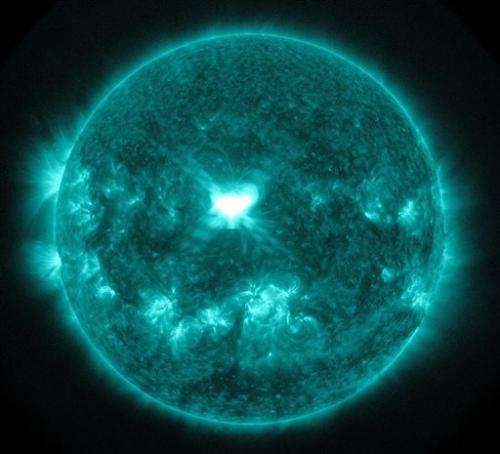This image provided by NASA, shows an extreme ultra-violet wavelength image of solar flare captured about 1:45 p.m. EDT on Wednesday, Sept. 10, 2014. It's been several years since Earth has had a solar storm of this size coming from sunspots smack in the middle of the sun, said Tom Berger, director of the Space Weather Prediction Center in Boulder, Colo. (AP Photo/NASA)
A solar storm zapped Earth on Friday but it was causing few, if any, problems. It also may allow more people to see the colorful northern lights.
Space Weather Prediction Center forecaster Chris Smith said the storm left the sun on Wednesday and first arrived on Earth at 9:55 a.m. EDT, and will continue disrupting the magnetic field through Saturday. It will likely only be noticed by specialized equipment.
He said it was a strong hit for Earth—the biggest since June last year. But he said the strongest of the energized particles went just above Earth.
Areas as far south as Seattle; Des Moines, Iowa; Chicago; Cleveland and Albany, New York, potentially could see the northern lights Friday and Saturday nights, depending on the weather and lighting conditions.
© 2014 The Associated Press. All rights reserved.























